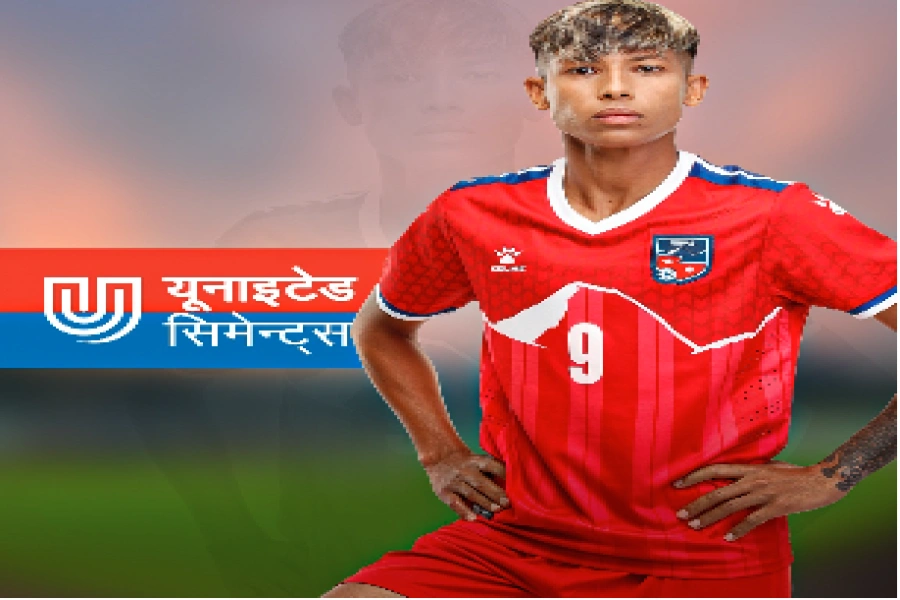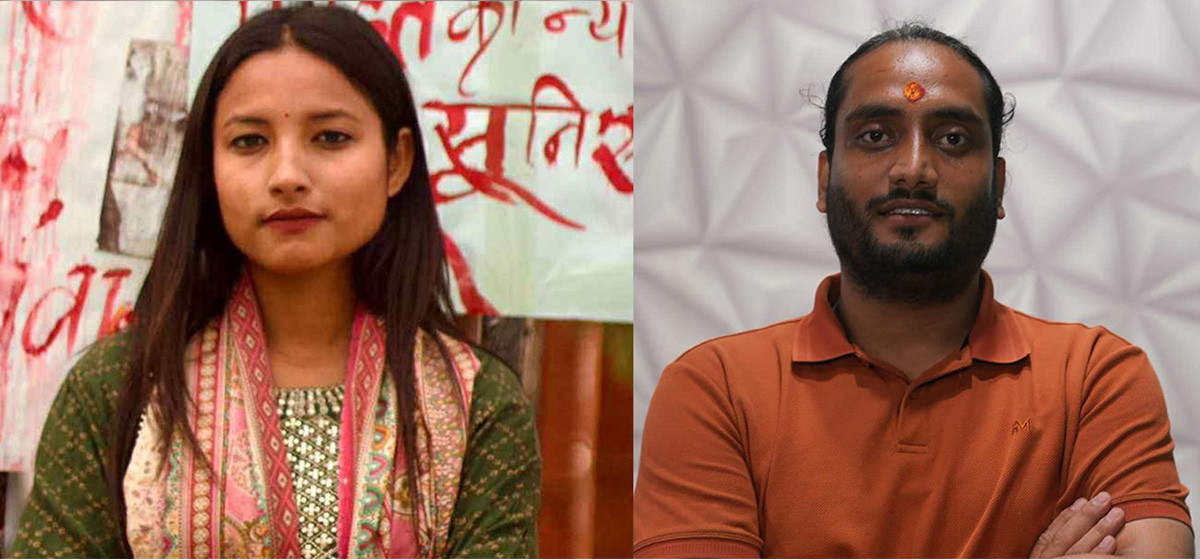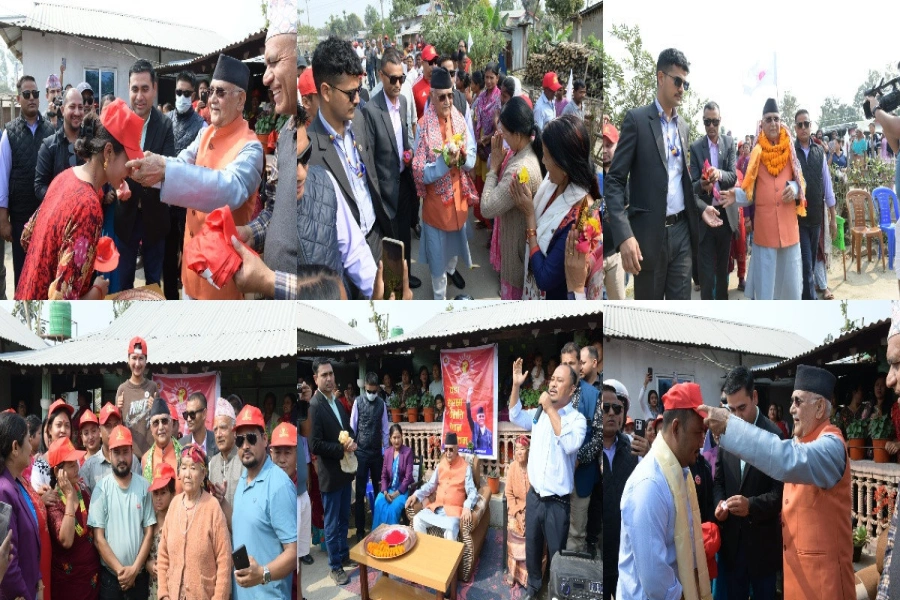KATHMANDU, Jan 1: The year 2021 started with uncertainty over the country's political stability and democratization process as a whole. But as this eventful year comes to an end, the country is not only headed not only toward political stability but also toward democratic consolidation. As the drama unfolded in parliament which was dissolved twice by the then Prime Minister K P Oli and reinstated as many times by the Supreme Court, which ordered the formation of a coalition government led by Nepali Congress (NC) President Sher Bahadur Deuba, constitutionalism eventually prevailed. Prime Minister Deuba hasn’t done wonders but, the reinstatement of parliament, many argue, should be seen as a landmark development that effectively nipped Oli’s authoritarian ambitions right in the bud. The year 2021 was also an important year in view of the country's politics and democratization process as all major political parties in the country — Nepali Congress (NC), CPN-UML and CPN (Maoist Center), and Rastriya Prajatantra Party (RPP) — have concluded their general assemblies after a hiatus of more than five years, electing a significant number of youths rekindling hope.
Political analyst Geja Sharma Wagle argues that the year 2021 should be primarily seen as a year that marked the victory of democracy over the autocratic ambition of the then Prime Minister Oli. "There was utter confusion about the fate of democracy and democratic system in the country when we entered the year 2021. But we are starting the New Year 2022 with a hope to bring social and political transformation through a democratic process. We are on the path of moving toward political stability and development through a democratic process," says.
Indeed, the country was without the House of Representatives — the lower house of the federal parliament -- and a section of political parties were on the street against Prime Minister K P Oli's 'regressive' moves when the year 2021 started. The country was witnessing a sharp political polarization following Oli’s abrupt decision to dissolve parliament on December 20 amid fears that he would be ousted from power as a result of a growing intraparty rift within the then Nepal Communist Party (NCP). The NCP faction led by Pushpa Kamal Dahal and Madhav Kumar Nepal started a demonstration against what they described as an 'unconstitutional' move to dissolve the elected parliament. The main opposition party, Nepali Congress (NC), separately staged demonstrations calling it a 'regressive' move. The Oli-led faction of the NCP was also busy staging demonstrations in major cities across the country to justify its 'unconstitutional' move to dissolve parliament. The series of demonstrations even in the midst of the COVID-19 pandemic came to an end after the Supreme Court reversed Oli's move and reinstated parliament on February 22.
No one should dream of going against democracy: PM Deuba

The country's politics that was otherwise focused on the reinstatement of parliament and ousting Oli from power took a new twist after the Supreme Court (SC) on March 7 scrapped the Nepal Communist Party (NCP) registered in the name of KP Sharma Oli and Pushpa Kamal Dahal, validating a little-known Rishi Kattel’s claim who had registered Nepal Communist Party at the Election Commission much before the Nepal Communist Party (NCP) was registered in the names of Oli and Dahal in May 2018. The SC verdict came at a time when both factions of the ruling party -- one led by Prime Minister KP Sharma Oli and the other by Pushpa Kamal Dahal and Madhav Kumar Nepal -- knocked on the Election Commission (EC) door claiming the legitimacy of the party. Nonetheless, there was a hope that the country's politics was on track again since the apex court had already reinstated parliament that had just crossed three years of its five-year term.
But that remained just a hope. Prime Minister KP Oli chose to dissolve parliament again on May 21 and announce fresh elections arguing that none of the political parties in parliament were in a position to secure the required majority votes in parliament to form a new government. As anticipated widely, the apex court again on July 12 reinstated parliament, issuing a mandamus to appoint NC President Deuba a new prime minister. Oli had dissolved parliament a few hours after midnight of May 21 after President Bidya Devi Bhandari rejected the application submitted by Deuba to get appointed as the PM. Interestingly, Oli himself had submitted an application to get appointed as the next prime minister in an apparent bid to block the smooth constitutional process. The NCP that was formed after the merger between the UML and Maoist Center was already split by now. What followed next was the split of the Oli-led UML as senior leader Madhav Kumar Nepal chose to form a new political party called CPN (Unified Socialist), splitting the erstwhile Nepal Communist Party (NCP) into three different parties at the end of 2021. This ‘split infection’ did not spare even the Madhes-based parties. The Janata Samajbadi Party saw a vertical split as the intraparty row between the two top leaders of the party –Mahantha Thakur and Upendra Yadav– reached its peak as Thakur sided with Oli while Yadav was for Deuba as the next prime minister, following the apex court’s reinstatement of parliament for the first time.
Despite vertical splits and intra-party rift in major political parties, the year 2021 was important in view of the fact that three major political parties, the Nepali Congress, the UML, the Maoist Center, and Rastriya Prajatantra Party — were able to hold their long-due General Convention. The General Convention did not see any significant ideological debate. Yet, it was important that these parties were able to elect new leadership and a few youth leaders like Gagan Thapa, Bishwa Prakash Sharma, Rajendra Lingden in the party's central leadership positions. Political parties are required to hold their general convention every four years to elect the party's new leadership. All these political parties were not able to hold their general conventions for different reasons including the COVID-19 pandemic. As for an instance, NC had repeatedly extended the terms of its office bearers after it failed to hold its general convention even four years after its last General Convention held in 2016. The delay in holding the party's General Convention had made it difficult to inject new blood in the party's leadership positions and give birth to new leaders at the local level.
Although analysts see the year 2021 as a year that saw the triumph of democracy over the autocratic ambitions of a section of political leaders and the democratic consolidation, many argue that the year 2021 saw the basic foundation of democracy shaken to its cores. While the elected representatives and their government were reduced to mere puppets, the judiciary turned out to be an all-powerful institution in the country. All constitutional bodies were rendered defunct and were unable to function independently. This worsened further as the then Prime Minister Oli introduced an ordinance that paved the way to unilaterally appoint office-bearers of all major constitutional bodies. Public trust in these bodies eroded so much that most of their decisions were challenged at the court. So much so that even day to day functioning of the government was largely dictated by the judiciary. Over a dozen cases that have bigger implications on the country's political course including the fate of Madhav Kumar Nepal-led CPN (Unified Socialist) and those appointed in various constitutional bodies are sub judice at the court. Political analysts argue that leaving the decisions that are otherwise purely under the purview of the country's chief executive in the hands of the judiciary is a bad omen for the country's democratic future. However, senior advocate Dinesh Tripathi begs to differ on this. "Of course, there are some issues with the incumbent Chief Justice. But our judiciary has helped consolidate democracy and the democratic system in the country. It is the duty of the judiciary to check any attempt to breach the bounds of the constitution and the existing laws," he argues.
As the country enters the New Year 2022 on Saturday, not all is well on the political front. Parliament that is supposed to be the platform to raise people's voices continues to be obstructed by the main opposition party. The country's judiciary is in a complete mess. Protests which began demanding the resignation of Chief Justice Rana have continued for months. The constitutional bodies that are supposed to ensure accountability of the government have themselves courted a series of controversies. Good governance has been a distant dream. As the political parties keep themselves busy in internal wranglings for power, unscrupulous businessmen have taken to making hay while the sun shines, giving rise to huge inflation. The unemployment problem has continued to worsen even as the effects of the COVID-19 pandemic are fading and life is returning to normalcy. So much so that even development projects such as those funded under the Millennium Challenge Corporation (MCC) compact agreement have fallen victim to indecision for years as political parties seem to be looking for an opportunity to politicize the agenda to divert votes of their rival parties in the upcoming election. Since the year 2022 is most likely going to be the year of elections, let's hope that all major political parties will be involved in politics that cares about the people they represent and take these issues as their political agenda to realize people's aspirations for good governance and development.
Hope is all we have. Let’s hope 2022 will be a productive year in Nepal’s journey to peace and prosperity. Let’s hope we all will let our hopes, not our hurts, shape 2022.





























-1200x560-1771928761.webp)









